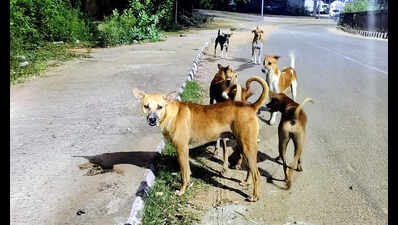ARTICLE AD BOX

Over 4,200 dog bite cases were reported between March and June this year in Bhubaneswar
Bhubaneswar: Following the Supreme Court’s directives on relocation and sterilisation of stray dogs from institutional areas on Friday, animal activists have called them harsh, impractical and a threat to community welfare.
The focus is also back on a surge in dog bite incidents and an exploding stray population in the twin cities of Bhubaneswar and Cuttack.In the capital city alone, over 4,200 dog bite cases were reported between March and June this year, with Capital Hospital administering more than 17,000 anti-rabies vaccine doses during this period. The city currently reports an average of 35 dog bite cases daily, a figure that spikes during mating season, currently underway.In Cuttack, the stray dog population surged six-fold in three years from 600 to over 4,000. Localities like Telenga Bazaar, Buxi Bazaar and Jobra are witnessing frequent attacks, with 13 dog bite cases reported in a month.Sangita Das, a Bhubaneswar-based animal rescuer, said that the order feels like a setback. “We have spent years building trust with community dogs near schools and hospitals. Relocation will undo all the progress,” said Das, adding that many dogs in institutional zones are already sterilised and vaccinated.
Dr Jitendra Pasupalak, a Bhubaneswar-based veterinarian, said that sterilisation is essential, but mass relocation can trigger territorial fights and increase aggression. “It’s not a sustainable solution,” he said.Abhijeet Sahoo of a city-based NGO said that instead of removing dogs, the civic authorities should strengthen animal birth control (ABC) programmes and educate people. “Bhubaneswar’s stray dog issue needs compassion, not eviction,” Sahoo said.In response to an earlier SC order, the Bhubaneswar Municipal Corporation (BMC) estimated the stray dog population was around 85,000, nearly double of that in 2020. The civic body launched a dog census across all 67 wards, deploying over 420 trained teams to collect data on the gender, territory and vaccination status of stray dogs.BMC also resumed the ABC programme after a two-year break, with a target of 2,000 sterilisations per month.
It has also built 360 kennels for post-operative care at Mancheswar and Saheed Nagar.“We have plans to scale up the animal birth control programme three to four times its current capacity. A proposed bylaw for registration and regulation of pet dogs is pending approval from the housing and urban development department,” Bhubaneswar mayor Sulochana Das said.Residents in both cities complained of delayed sterilisation efforts, inadequate infrastructure and lack of coordination among civic bodies.
Residents urged the authorities to comply with the Animal Birth Control Rules, 2023, and formulate a robust action plan.“We will be taking follow-up action on stray dogs and cattle based on SC’s directive. We are procuring machinery and increasing our manpower to achieve the objective set for the city,” Cuttack mayor Subhash Singh said.With Odisha reporting over 5,20,000 dog bite cases between Jan 2023 and Oct 2024, around 777 attacks per day, the urgency for coordinated action across urban centres cannot be overstated.“As Supreme Court has now mandated the immediate relocation of stray dogs from institutional areas, the onus lies on municipal bodies like BMC and CMC to implement humane yet effective strategies to safeguard public health and uphold the constitutional right to life and safety,” urban planner Saroj Nanda said.

 4 days ago
9
4 days ago
9








 English (US) ·
English (US) ·